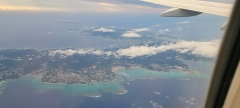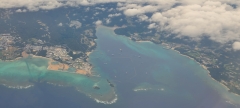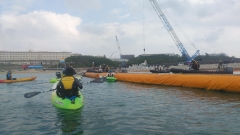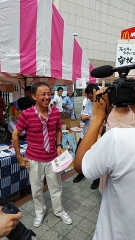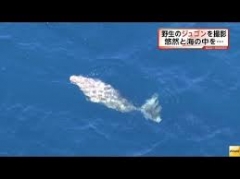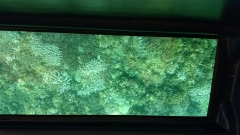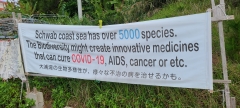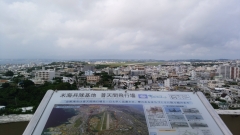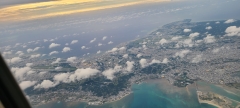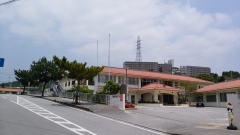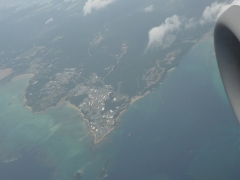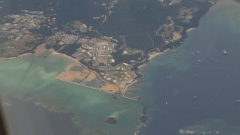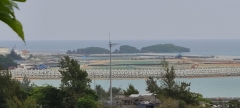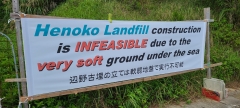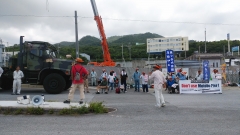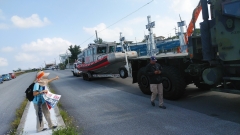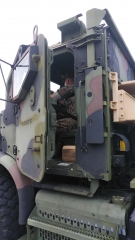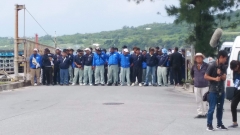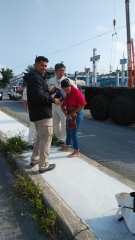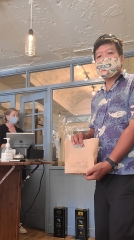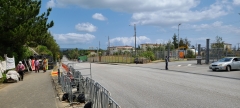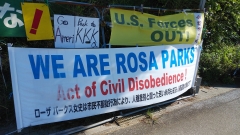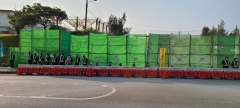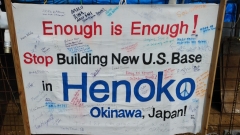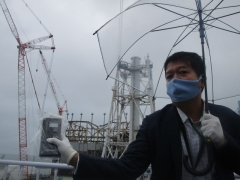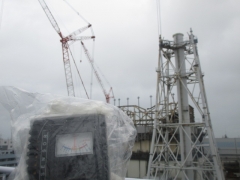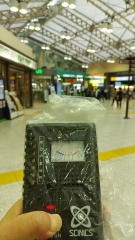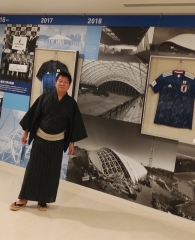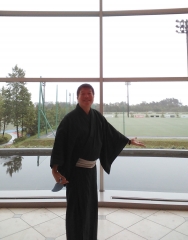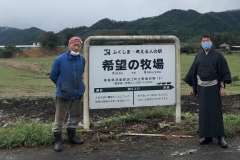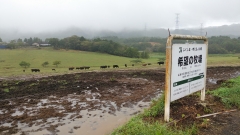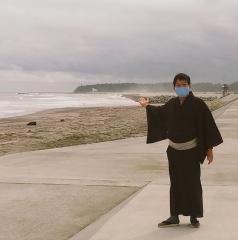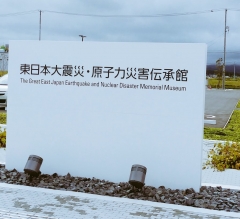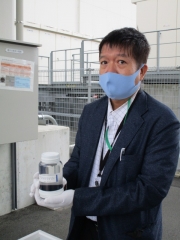31 May 2021
Dear US Government re: request for terminating USMC new base construction in Okinawa, Japan
Dear US President Biden, Congressmembers, Senators and other decision makers of the issue,
My name is MASAGATA, a Japanese man living in Tokyo. I used to study at San Francisco State University, where I majored in International Relations. I am now working as a translator using the English knowledge I acquired in the US.
I am writing this letter to urge US government to terminate current ongoing landfill construction to build a new US Marine base runways at Camp Schwab, Henoko, Nago city, Okinawa prefecture.
This is the modified version of the letter I sent US Congress members and Senators in a joint Armed Forces Committee which was finalizing National Defense Authority Act two years ago. I added updated information to it.
The below is main points I would like to describe in this letter.
- What has been going on up until now
- Locals oppose the new base construction
- Wildlife and ecosystem are threatened
- Technically, physically infeasible project
- This construction might deteriorate friendship between the two nations
- Your Servicemen & women and American residents are facing hostility in Okinawa
Some of the below photos can be enlarged by clicking on them.
----------------------------------------------
- What has been going on up until now
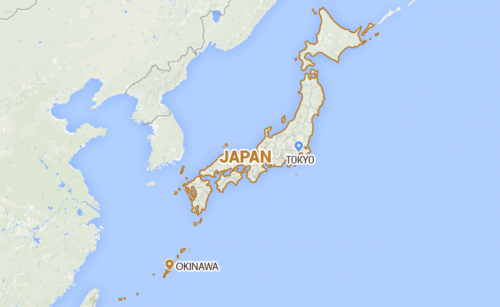
Okinawa is chain of islands and southernmost prefecture below mainland Japan. The climate is subtropical and blessed with abundance of nature surrounded by coral reef. It is 3 hour-flight from Tokyo and very famous for marine leisure tourism just like Hawaii. In fact Okinawa went through the same path as Hawaii did.
Until the end of 19th century it was an independent kingdom but annexed by mainland force. In 1945 US forces occupied Okinawa and then Okinawa has been occupied until 1972, which was 20 years after the mainland Japan regained sovereignty and was the only place that experienced ground battles within Japan, causing 200,000 civilian casualties during WW II.
In 1996 both the American and Japanese governments agreed to relocate US Marine Corp. Futenma base in Ginowan City, Okinawa to Camp Schwab to get away from the densely populated area around Futenma, together with some of Futenma capabilities to relocate to Guam in the Pacific.
Camp Schwab is on the coastline of Okinawa island, in an area called Henoko.
The relocation plan includes reclamation of the sea to build a new base that consists of two runways and ports expanding existing facility. Schwab is located in between Henoko coast (left) and Oura Bay (right) as you see in the photo taken on May 20, 2021.
- Locals oppose the new base construction
Since the plan was announced, locals and activists from all over Japan have been protesting the new base construction by holding referendums, supporting candidates of mayoral and gubernatorial election, and municipal assembly members, who oppose the construction, as well as sit-in demonstration at the gate of Camp Schwab and kayaking at the landfilling site as civil disobedience act. Until now, tens of protesters were arrested and injured by police at the gate or coast of Camp Schwab.,
In September2018, Okinawans elected Denny Tamaki as a Governor of Okinawa after death of then governor Takeshi Onaga, who was opposed to the new base construction. Mr. Tamaki succeeded the will of Onaga and won the election. He was formerly a Diet, Japan’s National Assembly member.
His father was a US Marine serviceman stationed in Okinawa and mother was Okinawan native. It was first time in Japan that a racially mixed man was elected as governor of one Prefecture. He proved that Japan is no longer homogeneous population and the nation can tolerate diversity.
In February, 2019, Okinawa held referendum to ask whether locals approve or oppose the landfill construction at Henoko sea for the construction of a new United States Marine Corps base. The outcome was that 71% of voters oppose the new base construction.
The main reason to oppose the relocation of Futenma is the relocation takes place within Okinawa island, not outside of Okinawa prefecture, which cannot reduce burden on Okinawans' lives.
In April and July of the same year Diet member elections were held and in Okinawa constituency, candidates who announced opposition to the new base construction won in both times.
That proves local opposition is very obvious and hasn’t changed for decades.
- Wildlife and ecosystem are threatened
Many environmental activists also oppose the plan because of the abundance of forms of wildlife that are unique to the area around Camp Schwab.
This photo is of a dugong, an endangered marine mammal that eats grasses in the sea. It is just ridiculous that the nation that protests Japan’s whaling in the Antarctic Sea – and even dolphin hunting in Taiji, Wakayama Prefecture that ex-US Ambassador to Japan, Caroline Kennedy was eager to protest – is helping to threaten another marine mammals that live in Japan.
In Oura Bay, the world’s largest, oldest and northernmost blue coral lives and has continued to grow for 3000 years.
Many new species are discovered in the bay recently. A lot more may be still undiscovered. It is estimated more than 5600 species exist in the Henoko and Oura bay area.
Great biodiversity for humanity lies in the sea.
US Marine Environment Protection Organization, Mission Blue designated the area as one of “Hope Spots.”
https://mission-blue.org/2019/10/japans-first-hope-spot-h...
On Henoko coast, the sea is now enclosed and being reclaimed and dugongs and other creatures’ lives are now threatened. Dugongs’ sea grass is found in the current reclaiming area and some of untouched planned areas. They are losing their feeding place.
As for blue coral, reclaimed space can change the sea current and might adversely affect life of the coral. Then what will happen is that your nation will be accused of helping to diminish such wonderful and rare creatures.
Actually, the Japanese Ministry of Defense carried out an environmental assessment in which it was claimed that there were no dugongs in the sea. But the environmental organizations such as WWF and The Nature Conservation Society of Japan claim that the MoD’s assessment was wrong and the organizations’ own research found clear traces confirming the existence of dugongs. Later, Okinawa’s local newspaper revealed the news that the MoD was aware of the finding but had covered it up.
Because of these facts, the petition to the White House to halt landfilling of the sea was launched in 2018.
https://petitions.whitehouse.gov/petition/stop-landfill-henoko-oura-bay-until-referendum-can-be-held-okinawa
(Stop the landfill of Henoko / Oura Bay until a referendum can be held in Okinawa Created by R.K. on December 08, 2018)
More than 200000 signatures were collected in two months.
The petition campaign was led by a famous fashion model and TV personality, Rola (Mixed race woman between Japanese and Bangladesh), who posted the petition campaign on her Instagram page. She was an environmental activist.
- Technically, physically infeasible project
There are technical issues revealing infeasibility of the construction project as follows.
- Active faults are found down below planned construction site of runways. If that is the case in California, the project wouldn’t be permitted.
- Around planned construction site of runways there are buildings higher than US military aviation standard, flying helicopters or ospreys there might cause collision with these buildings, similar situation to Futenma Air Base in Ginowan city. (The below photo is Futenma base and its surrounding area from observatory site in the city.)
(Below photo is Futenma Base on the left and Kadena Air Base on the right.)
The buildings include school and its dormitory at which young students attend classes or reside. No plan of relocation is announced although a power transmission tower next to the building was already planned to relocate from that site. (The below photo is a local town next to Camp Schwab.)
- Geological survey conducted in the sea to landfill indicates sea ground is too soft to pile soil on like mayonnaise, which consumes more budget and time to landfill so the construction period should be much longer than expected like 20 years from now.
The below photo was taken in January 2018.
The projection map of Henoko coast and Oura Bay reclamation to build two runways on relocation site of Futenma.
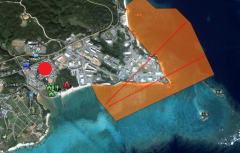
Currently Henoko side, left side of the map has been landfilled.
Although the landfilling already started in Heneoko sea side area (left side), but at this point only one third of all the planned area is landfilled and even the one third is not fully landfilled yet. It was filled up to 3 meters high but still requires another 4 meters, which would take at least another 3 years and the other two thirds on Oura bay side (right side of the photo) have not started at all due to the technical issues related to very soft ground under the sea. Henoko side is shallow but Oura bay side is very deep.
Even after 2 years and half passed since landfilling started, only 6 % of total amount of soil was used.
The below photo is Henoko coast side landfill. Only 3 meter of planned 7 meter is filled up.
Initially that bigger Oura area, was supposed to be landfilled first but it was found even piers cannot withstand minimum level of earthquake.
Even US GAO (Government Accountability Office) recently and the think tank CSIS recently reported Henoko landfill construction is difficult to implement due to the technical issues.
It is possible that the project is cancelled halfway for some reason but irreversible damages would be left together with grudge from locals. Some portion of the budget for relocation of Marine Corp. to Camp Schwab and Guam is spared by US Government. That means this project wastes not only Japanese tax payers’ money but Americans as well.
It has been done for the interests of the few. The few, you might know, are certain businesses and government people who want some gains from the project. One of major contractors of the project is Taisei Kensetsu Corporation, where third son of current Prime Minister, Suga, works.
- This construction might deteriorate friendship between the two nations
You might say this issue is something to be handled by the Japanese government, and that it is not the responsibility of the US military. But that sounds very hypocritical. The US military is the one that uses the facility and up until now involved in designing of new runways and annexed facilities. The US government can cancel that project and find another relocation site outside Okinawa.
If the US continues to attribute this to the Japanese government, it is just like what Japanese conservative politicians say when it comes to the “Comfort Women” issue: “The Japanese Imperial Army was not responsible for kidnapping women in Asia for sexual slavery for soldiers during the war period in the early 20th century, it was what outsourced local brothels did.” The US Congress disavowed such argument and made a resolution to demand that the Japanese government apologize for former comfort women in 2007.
Doubts about US commitment to Japan’s defense
In fact, the US military presence in Okinawa and even nationwide is becoming nothing but troublesome. More of us know that the US military presence no longer functions as defense or deterrence like in the Cold War era. China is said to be a new threat but we know that US-China relations have become more vital for your nation since China owns more US treasury bonds and buys more US goods than Japan does. China has become a larger economy than Japan these days.
We can easily predict that the US would not help Japan even if China and Japan became involved in a dispute for some reason such as the territorial right to the Senkaku islands located in between sea border of Japan and China. The US cannot send troops to assist Japan fighting against the Chinese military because such action might cause great losses for your national interests. China also played a big role in negotiating with North Korea. China is vital for US foreign policy.
Military experts and even former US military officials say that the biggest reason that the US military forces stay in Japan is to cut cost of their own because Japan provides host nation support fund, which we call “Sympathy Budget” that accounts for more than 70% of total expense for the US bases in Japan. There are more than 130 facilities of US military in Japan. Most of the troops are stationed at 30 facilities in Okinawa prefecture that accounts for 1 % of total of Japan’s territory and population.
During Vietnam War, it was a transit point to transport soldiers, military weapons and equipment. Now there is no strategic importance. How many of US congressmen and senators knows Okinawa? Is this place worth keeping bases in?
Deploying your military so much in our country, especially Okinawa is just causing growing distrust against your country. I believe the Okinawa issue presents the perfect timing for your nation to rethink its military deployment in Japan in order to improve the relationship between the two nations. Constructing a base on reclaimed land in the Henoko sea is the worst possible idea.
The Image of America is getting worse lately
US military presence functions to apply American influence on our nation. Yes, it did work that way but you really have to know this may be working negatively. The image of your country itself is no longer positive like in the past. In other words, the US is no longer a powerful land of dreams, nor is it any longer a role model for us.
One example of this can be seen in a recent best-selling book on your country’s poverty issue. The title of the book is “Rupo Hinkontaikoku America” (Report, Poverty Superpower, America). It was written by a Japanese journalist, TSUTSUMI Mika. The book describes how Americans are struggling with poverty in a plutonomy society and explains how Japan should not follow suit.
We know that a lot of young Marine troops stationed there come from poor families that cannot afford college education and have problems like domestic violence. They join the Marines by system, so called, Poverty Draft. That is why they cause troubles with Okinawa locals.
In addition, four years of Trump administration proved disparity among your nation. Although Trump lost in last year’s presidential election. 74 million Americans voted him, record number among sitting presidents. His comments during the administration delivered very negative images of America to Japanese citizens. We expect someone like him would be reelected in near future, which is disappointing me, who learnt decency of America.
- Your Servicemen & women and American residents are facing hostility in Okinawa
In September 2019, US Marines faced apparent resistance from locals and activists. citizens blocked port entry of US Marine vehicles carrying a boat for training. The port was located in Motobu town, 30 minute drive from Henoko and the boat was supposed to be shipped to nearby island.
Young military servicemen and women had to hear yelling from protesters and waited inside the vehicle for hours without air condition. The Marine vehicle was trying to enter the port to unload the boat to use for training on the sea.
Even port workers were standing at the entrance as human shield. The workers oppose military use of the port because they want to allow only civilian use. After 10 hours of sit-in protest, Marine vehicle with the boat on a trailer had to leave the port to go back to Camp Schwab.
I was there joining the sit-ins and talked with servicemen and woman. They seemed very unhappy having such conflicts. They should feel like being deployed on enemy line, not in allied nation.
Just recently I met an American woman who manages a cheese shop “Little Greek Kitchen” at Plaza House Shopping Center in Okinawa. She was interviewed by Japan’s national television station NHK, and said that she did not want to be recognized as US military affiliated because reputation of US military has been very bad. She welcomes anyone regardless of nationality or what organization they belong to.
At the Camp Schwab gate, every day they have to see the protesters’ civil disobedience act and in many times being yelled at and called names. They never feel welcome. I do not think they feel honored to serve Marine Corp. as long as they are stationed in Okinawa.
Just next to Camp Schwab personnel entry gate is construction vehicle gate where every weekday, protestors sit-in to block the construction vehicles so that less vehicles could get in and delay the construction.
Do you think this situation creates healthy relationship among US, Japan and Okinawa? Proceeding of such unnecessary and infeasible construction are just making things worse. It should be halted immediately for the friendship or for the time being, construction must be stopped for the review.
Current Japanese government is willing to continue this but the opposing parties announced the termination of the construction if they regain the governance of Japan since the local protest is growing bigger than ever and the construction is found to be infeasible. Even a former Defense Minister, Nakatani in the current ruling party claimed it should be stopped.
Moreover, COVID-19 pandemic delays the construction schedule in addition to the local resistance. Last year the construction was halted for 2 months because the workers got infected. Camp Schwab service personnels got infected as well. More budget for the pandemic relief is required. We will soon meet with the serious budget shortage and chaos due to the pandemic.
As for practical solutions, I recommend your organization to review a proposal by a private think tank, The New Diplomacy Initiatives (http://www.nd-initiative.org/en/), which suggests removal of US Marine bases from Okinawa but instead, establishing joint Humanitarian Assistance/Disaster Relief (HA/DR) Corp. with Japan’s Self-Defense Force equipped with high speed transport vessels, which rotates around East Asia. It is cost-effective and able to contribute to security of the region more realistically.
Sincerely,
Please Stay Safe!
P.S.
Permit me for writing some awkward or grammatically incorrect phrases since I am not a native speaker of English.
18:55 Posted in Ecology, Japan News, Politics, US-Japan relationship | Permalink | Comments (0) | Tags: okinawa, military
03 April 2021
Will Japan legalise gay marriage?
Last month, one of Japanese district courts, Sapporo District Court ruled that current Civil Law that does not recognise the same sex couple as legitimate married couple is unconstitutional. It was a revolutionary decision for Japanese judicial administration since Japanese constitution claims that marriage is recognised only if both sexes agree. But the court says this statement does not mean gay marriage is banned but to rule only individuals can decide who to marry. In the old days, it was common that parents of the couple decided who to marry without their will. Gay marriage was out of imagination.
Rather the court paid attention to the other part of constitution that states all the people must be treated equal. So the current Civil law which only admits heterosexual couple to the marriage is unconstitutional.
However, some claim gay marriage is not allowed in the constitution as says “both sexes” and traditional family value does not conform to gay marriage.
As for public opinion survey, Asahi Shimbun Newspaper revealed that 65% of Japanese citizens of all ages support gay marriage. 5 years ago it was less than half. The society has drastically changed recently.
Japanese parliament already has two openly gay members. Their party Constitutional Democratic Party proposes amendment of Civil law.
Even among conservative side, current ruling party LDP, one of young representatives, KOIZUMI Shinjiro, whose father was Prime Minister between 2001 to 2005, said he is for gay marriage and he would be very considerate father if his child’s sexual orientation was same sex person when asked if he was pro-gay marriage and what he would do if his child was gay.
Japan is not Christian nation so religious faith would not be an obstacle. Only the old values and peer pressure are problems. I guess it is a matter of time that Japan approve gay marriage legally and socially.
Currently around 30 nations in the world legalised gay marraige. Among G7 nations Japan is the only nation that does not legalise gay marriage. Marriage equality is an urgent issue if Japan wants to join truly advanced members of the world.
I would be proud of being Japanese and love my country more than ever if that happens.
16:57 Posted in Japan News, Politics, Society | Permalink | Comments (0) | Tags: gay, homosexuality, lgbt
25 October 2020
Visited crippled Fukushima Daiichi Nuclear plants in process of abandonment: My Dark Tour Report
Last September I visited Fukushima Daiichi Nuclear Power plants being in the process of abandonment. 9 and half years ago, diesel generator for emergency that had run 4 of 6 plants were destroyed by tsunami and released massive amount of radioactive to surrounding area in Fukushima prefecture, located about 200 kilometer away from Tokyo. What happened was inside these reactors, nuclear fuels lost coolants and melted and then hydrogen was touched with oxygen of air, that caused explosion.
I joined two-day tour to the Fukushima nuclear plants and its nearby area. On the first day, my tour group was escorted by workers of TEPCO, which is responsible for the accident and current abandonment, to the site.
Surprisingly, visitors were not required to wear protective suit to enter the site because most of the sites are already cleaned up. Even workers there do not need to wear ones.
I could bring my own radioactive counter to back side of the plants. The photo was just taken behind the No.1 plant which exploded first followed by No.3, No. 4 and No.2 explosions. All of the crippled 4 plants (No.1 to 4) were capped but nuclear debris are still inside the reactors and planned to take out a few years later.
Compared to the level measured in Tokyo (photo below), it was detected extremely high level, over 80 micro SV.
That night we stayed at J Village sports athletes accommodation and training facility located 20 km away from the site, in which TEPCO and Japan’s defense force used during the crisis. Now the facility is back to normal as had been before the disaster.
Last year some foreign Rugby teams used the facility during the Rugby World Cup tournament. It has a hotel-like accommodation and several field grounds for soccer or Rugby. Hotel room was cozy with a shower room. But the hotel has nice view big communal bathroom on top floor.
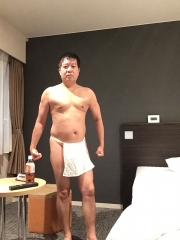
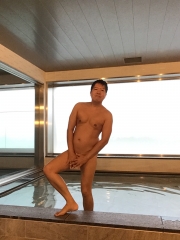
Next day we visited the cattle farm named Kibo no Bokujo (The Cattle farm of Hope) of more than 200 oxen abandoned after the disaster. It is located in Namie town, 10 km northwest of the nuclear plant site. The owner of the farm, Mr. Yoshizawa we met said he takes care of the abandoned oxen even the government instructed him to kill them. The farmland is enclosed by high-voltage electric wire to prevent oxen from escaping. Before the accident, Fukushima was known as one of greatest breeding place for oxen that had produced delicious beef.
He said he wanted to keep them until they naturally die to symbolise the responsibility of humankind who breed them and established nuclear power plants that affected their lives.
He gets no income but pays annual cost of more than 10 million yen (around 100 thousand Euro or US$ worth). All the cattle are castrated so no more offspring will be created. The cost was funded mostly by donation.
This tour is not only for learning about the nuclear accident but the big earthquake and tsunami disaster. Over 20000 people in Northeast region Japan died or are still missing by that.
On the sea coast, 6 km away from Fukushima Daiichi plants there still remains of what happened in tsunami hit residential area.
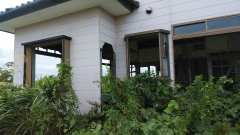
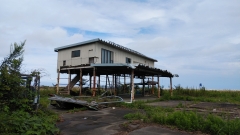
The new museum in memorial of the disaster and nuclear accident was established and opened in September.
However, the disaster never ended. As fore-mentioned, the abandonment is still halfway and might even take another decades to finish.
Just recently TEPCO announced it will release processed contaminated water in which hazardous nuclear substances was filtered out but still tritium is contained to Pacific Ocean. They claim it is not hazardous to environment because tritium has very low-level of radiation, which experts claim outrageously wrong.
When I visited the crippled nuclear plants, I was requested to take a photo with a water bottle that contained tritium to appeal it is safe.
Well, it seems we have to continue fight against the nuclear industry.
If you are interested in the tour, contact me through this blog or twitter. I can refer you to the travel agent. The cost is around 45000 yen (400 Euro or US$). Dark tour or I would say, good Study tour for you.
13:02 Posted in Ecology, Health, Japan News, Science, Society, Travel | Permalink | Comments (0) | Tags: nuclear power, fukushima, trip
04 May 2020
Introducing Japan's gayest TV drama "Ossan's Love" aired on mainstream TV channel
While I locked down myself to prevent novel corona virus spread at home. I just happened to rent DVD drama programs "Ossan's Love" which was aired in 2018 on one of Japan's mainstream TV network channels, TV Asahi. The drama consists of 7 episodes. Each episode was about 40 minutes long.
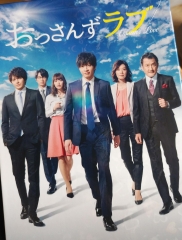
What was shocking to me is the comedy drama featured male gay love affairs all the way although it was aired on the mainstream channel and then it became so popular that subsequent film version was released in nationwide theatres and another version of the TV drama was aired on the same time frame next year.
The story took place in a real estate agency in Tokyo. The protagonist is 33 year-old male worker named Haruta (Middle in the picture.) Although the story evolved around him, the most important character was his supervisor Kurosawa (right edge in the photo), 55 year-old man, which in Japan commonly referred to as “Ossan” meaning “Old guy” usually middle aged.
Kurosawa was head of sales department of the real estate agency, equivalent to vice president of the company and a rich man. One day Kurosawa told Haruta that he loved him and would divorce his wife (Second from right) to be with him. Haruta was shocked to know that because he did not share love romance with his supervisor although he respected and liked him as a good business man.
Kurosawa then asked his wife for a divorce and then Haruta got involved in Kurosawas divorce quarrel. But Haruta also got in love affair with another man, Maki (left edge in the photo) in the office. But Maki had another love affair with another male worker. Two gay love triangles crossed over in the drama. Finally Kurosawa proposed marriage to Haruta.
The drama was all about gay love and love romance between man and woman was sidelined in the story. The gay male characters were portrayed as normal and decent person, not like psychopath or deviant ones. This is the big difference from the past. Gay characters were very normal and positive in the mainstream TV drama. Gay love romance was treated just as equivalent to straight people’s love.
Not just broadcast nationally on mainstream media but the show became so popular that film version and another version in which similar gay love story took place in an airline company using the same main casts next year. In 2019 version Kurosawa was a captain pilot of the airplane and Haruta was a flight attendant. Airline company is really existing company meaning commercial airline company sponsored the program.
Recently in Japan, more people have positive views on gay relationship and more people have become supportive of gay marriage. In national assembly there are two openly gay members, who call for legalization of the same sex marriage. Some municipal governments approved of the same sex partnership and provide certificates for the residents.
This show reflects this social change.
If you are interested, you can watch the English version of the show on Netflix.
15:25 Posted in Film, Japan News, Media, Society | Permalink | Comments (1) | Tags: lgbt, gay, homosexuality






